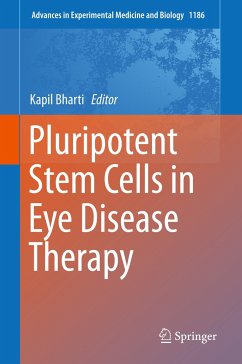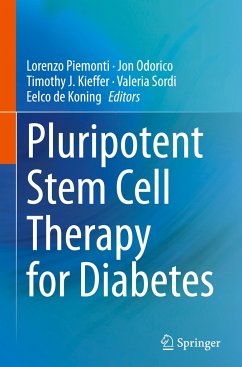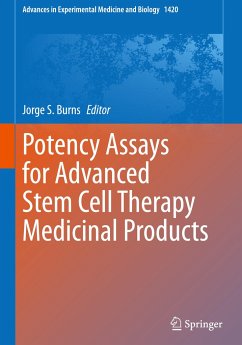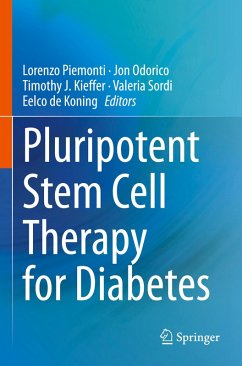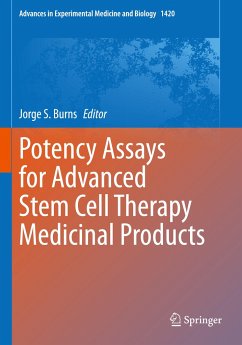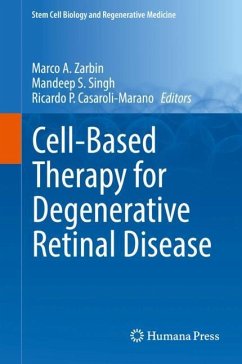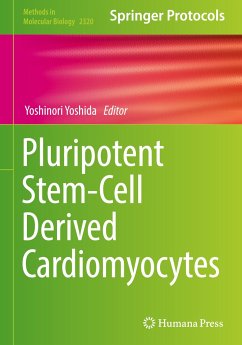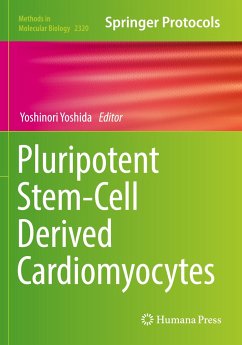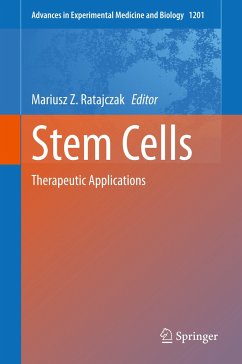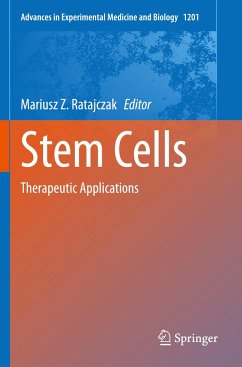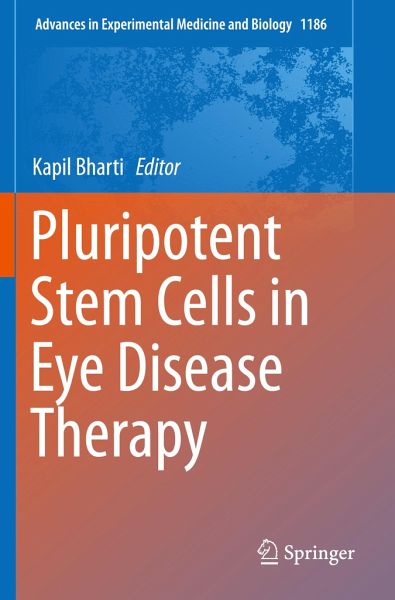
Pluripotent Stem Cells in Eye Disease Therapy
Versandkostenfrei!
Versandfertig in 6-10 Tagen
76,99 €
inkl. MwSt.

PAYBACK Punkte
38 °P sammeln!
This book discusses applications of pluripotent stem cells to study eye disease in vitro and to create novel therapies for degenerative eye diseases. Chapters are contributed by experts in the field and cover such topics as the use of pluripotent stem cells in 2D and 3D engineering of ocular tissues for disease modelling and drug testing as well as approaches to replace degenerated RPE and photoreceptors in macular degeneration and retinitis pigmentosa.Pluripotent Stem Cells in Eye Disease Therapy presents a comprehensive discussion of basic science and clinical applications and is an indispen...
This book discusses applications of pluripotent stem cells to study eye disease in vitro and to create novel therapies for degenerative eye diseases. Chapters are contributed by experts in the field and cover such topics as the use of pluripotent stem cells in 2D and 3D engineering of ocular tissues for disease modelling and drug testing as well as approaches to replace degenerated RPE and photoreceptors in macular degeneration and retinitis pigmentosa.
Pluripotent Stem Cells in Eye Disease Therapy presents a comprehensive discussion of basic science and clinical applications and is an indispensable resource for everyone from advanced graduate students to advanced professionals who want to learn about the potential of stem cell biology and its role in the field of retinal diseases.
Pluripotent Stem Cells in Eye Disease Therapy presents a comprehensive discussion of basic science and clinical applications and is an indispensable resource for everyone from advanced graduate students to advanced professionals who want to learn about the potential of stem cell biology and its role in the field of retinal diseases.



